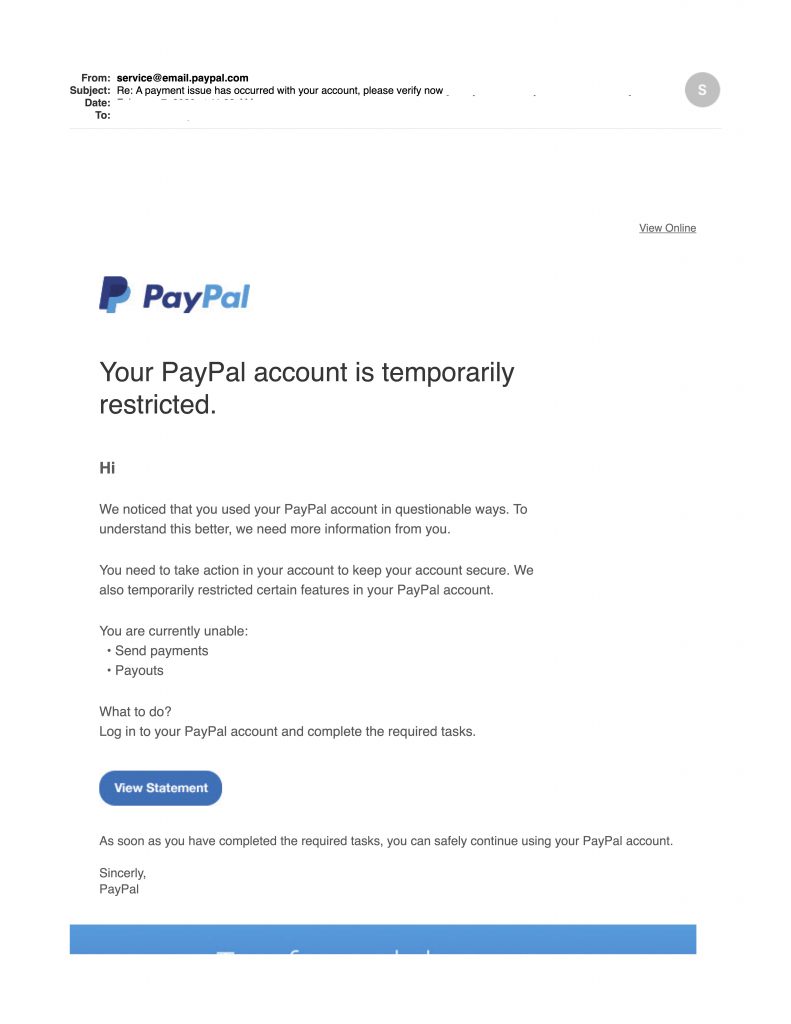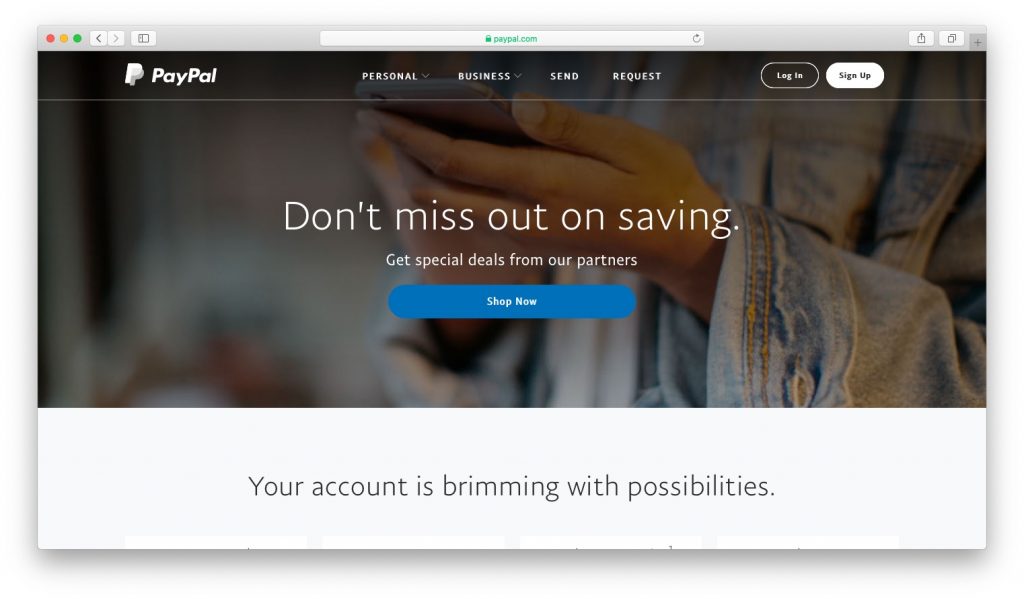One of the most popular subjects we have reported on has been the ongoing email scam saying that your Apple ID has been locked. We first reported on this in 2017 (read our report here), and posted a follow-up n 2018 (read the follow-up here).
This scam continues as we still get reports from our readers that they are receiving these notices. Fortunately, we have all gotten a little smarter and most people just ignore the email after checking that their account is, in fact, working properly.
But there is a new scam circulating. This one involves your PayPal account and if you’re not careful, can pose a serious threat, and result n the loss of some serious dollars.
The PayPal Email
This is the original email we received.

As you can see, it appears to be from service@email.paypal.com. This looks like it could be a valid email address and the body of the email loos very similar to other emails we have received from PayPal, including the PayPal logo at the top of the email.
But if you click on the arrow at the end of the email address, you can reveal the actual address that is tied to the name that appears. If you do that on this address, you will see the email address really looks like this.

In case you can’t see it in the image above, here is just the actual email address.

At this point, you should be pretty aware that this email did not originate from PayPal.
Don’t Click The Link
Assuming you didn’t check the mail address and just read the email, you may have clicked the button to view your statement. If that happened, you would be taken to a screen that looks just like the PayPal home page.

Of course, the normal reaction would be to sign in to your account. At that point, you would either get a 404 error or some other screen that had nothing to do with your real PayPal account.
Like the email, if you click on the paypal.com name in the address bar, you would see that the real URL for this site was:
https://medantravel.net/zT1Sd8D
Unfortunately, by that time, the scammers have now captured your log-in credentials and can sign into your account to get your credit card information, or collect any money that was still in your account.
The good news is, it appears the medantravel.net server has been taken off line, at least for now. But like all good scammers, they have probably already set up a new site as these emails are still showing up in people’s Inbox.
What To Do?
to follow for this and any other potential scams.
- Check the actual address of the email to see if it matches what is displayed in the From box of the email.
- Look for obvious mistakes in the body of the email. Things like misspelled words, poor grammar or bad punctuation are clear signs the person crafting the email does not use English as their first language.
- Rather than clicking any links in the message, go to the website by entering a known URL in the browser window.
- Once on that site, enter your ID and Password. If you are able to log into the site, you should feel confident your account is OK and you should ignore the email.
- If you do click on the link in an email and get directed to a web page, check the complete URL, not just what displays in the address bar. If it looks strange, leave the page immediately.
- Many legitimate companies have their own fraud departments. Check the real company page for an email address to their fraud unit and forward the email to them.
- If all else fails and you think you are a victim of an email scam, change your password on the impacted site immediately. If you use that same password on other sites, change those too.
Always use strong passwords. You can read more about Passwords and how to protect yourself on line here.
The Bottom Line
This is just one of the many PayPal scam emails that are circulating on the web. Others allege that your account has a fraudulent transaction, has unusual activity and others just claim that you need to update your account password. While the messages are often different, the intent is the same. They want you to log in so they can capture your ID and Password.
Email fraud continues to be a big problem and it seems like the scammers are always one step ahead of law enforcement. We all have to remain vigilant. By using common sense and questioning some of what appears in your email Inbox, you can beat the scammers at their own game.
Have you received emails that looked like a scam? What tipped you off? Why not join the conversation and leave a comment below.
If you liked this article, please consider sharing it with your friends and leaving a comment below. Also, don’t forget to “Like” us on Facebook, “Follow Us” on Twitter and add the Apple Tech Talk channel to your Apple News app.
And if you haven’t subscribed to Apple Tech Talk, now would be a great time to do it so. Just scroll down to the form below and enter your name and email address. Then you’ll receive a notification whenever we post new articles. Don’t worry, we never sell or share your information. While you’re at it, check out our YouTube channel (here) where you will find video on interesting products any Apple enthusiast would love.



Leave a Comment
You must be logged in to post a comment.